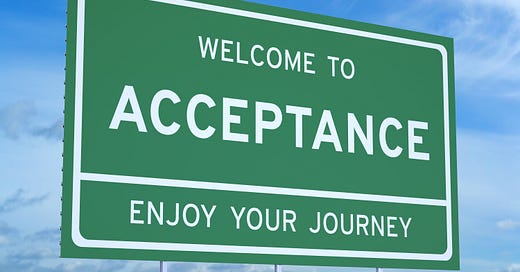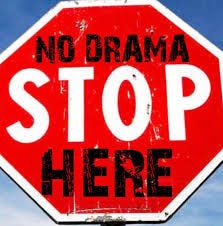I Refuse To Be A Victim
Raw thoughts on bravery, surrender and how I'm choosing to walk through breast cancer
People keep telling me how strong I am. How much they admire how I’m showing up for this unwanted curveball, this second roll of the dice with breast cancer and all the treatment.
Courageous. Brave. Strong. Inspiring.
I hear these words a lot. And I appreciate them, more than people probably realise. But being called brave also makes me think hard about what bravery actually is, and how I’ve chosen (deliberately) not to collapse into victimhood — despite the hand I’ve been dealt.
Here’s what I’ve come to understand.
I think there are a few reasons why people call me strong. One is that they sometimes imagine that if they were going through the same thing, they might not cope, they might break down. And they see me mostly cracking on and rolling with the hand I’ve been dealt without complaining or freaking out too much. So it’s a kind of forward projection, a reflection of their own self-doubt blended with a comparison to what they perceive of me right now, where they think they would come up short.
There’s also an element of wanting to be supportive and positive, and so telling me I’m brave is part of that. It’s always welcome. I don’t always feel courageous, but I do know that being told nice things is always nice!
Then there’s the important piece of how I’m showing up internally for myself during this whole process, and how that probably shows outwardly; all the ways I’m trying to maintain a sense of humour, optimism and surrender, how I’m getting organised and asking for help, and how all of that is being perceived by others.
Here’s some of the mindset-y stuff that works for me. And please remember, as you read this, that I am not new to the “getting through hard things” game…this kind of way of doing things at a deep soul level has become ingrained over decades.
Step One: Surrender to what is
Surrender. Acceptance. Dealing with what is, not how I’d like things to be. That has to be the number one thing. One of my favourite hard-hitting personal development quotes comes from Byron Katie:
“When you argue with reality, you lose—but only 100% of the time.”
Just letting it be the way it is has been so helpful. So much energy could be wasted wishing it wasn’t like this or wallowing in how unfair it all feels—but I choose not to. That’s not to say I don’t have thoughts along those lines, I just don’t sink into them for very long or let them drag me into helpless victim mode.
One of the great bonuses of acceptance is that it quickly shifts me into solution/coping mode. It’s impossible to be in the solution if you’re still fighting to accept the problem. This is, of course, classic Step 1–3 stuff for my fellow 12-step travellers. 22 years of sobriety and 12-step work comes in very handy in my case, a daily practice of surrender and shifting into the solution.
Acceptance is also a form of self-love. To refuse to accept what is going on, to fight it, to victimise myself by telling myself over and over that this is unfair and it shouldn’t be happening, is a form of self-rejection. I have decided to be on my own side for this, all of it. That means acceptance.
Gratitude is rebellion
Then gratitude comes into play. It’s the difference between appreciating things and being open-minded to the duality of there being good things inside the crap, versus being totally stuck in victim mode and only seeing the negatives. Gratitude can shift your internal experience of the same situation, and the lens through which you perceive everything that’s happening in your life.
When I was first diagnosed in 2018 and was very anxious, slipping quite deeply into the “It’s not fair” and “What have I done to deserve this?,” someone shared this with me:
Stop asking yourself why this is happening to you, and ask yourself why this is happening for you.
Ah yes. Both times, I’ve been diagnosed early. Treatment has swiftly followed. And I’ve been able to keep going with life—most importantly, keep being a mother to my wonderful boys, and keep going with the work that means so much to me (and that the world needs, too).
Not feeling like a victim to an unhealthy degree is helpful not just for me, it is also much better for everyone around me. I’m not expecting to be unnecessarily on unhealthily taken care of or rescued, I’m not helpless or banging on about why its all so horrible and unfair. I’m able to be cheerful more of the time, take care of myself and be taken care of without drama.
Emotions need movement, not suppression
Then there’s not holding stuff in or suppressing how I’m feeling. If I need to offload or share my fears, I call a friend and chat. If I need a little cry, I have a little cry. If I need to do some deep inner connection work to help energy move through me—or just walk Fizzy and be in nature—then I do that. Whatever it takes to acknowledge my feelings, then move them through. Suppressing or numbing isn’t an option… although, to be fair, the anti-nausea meds are a bit spacey, so perhaps they’re helping on that front too ;)
Brave doesn’t mean alone
Over the years, I’ve been absolutely blessed to have so many incredible friends, as well as a close-knit and lovely family. It’s times like this that people have shown up in spades: coming to appointments, driving me about, sending puppy videos, checking in, coming to stay, being on the other end of the phone at all times of night and day…
Without all of this, would I be so brave? I don’t know. Not being alone, or ever feeling alone, makes a huge difference to how you can show up in the face of challenges. Resilience doesn’t happen in a lonely vacuum. It comes from support and connection.
So yes, I may be brave. But it’s not some mystical superpower. It’s a daily choice. A conscious refusal to fall into victimhood. And a deep, deliberate commitment to keep showing up—with humour, acceptance, honesty, and a good dose of help from the people who love me.
If you’ve been moved or found this interesting, I’d love you to leave a like or a comment, it’s another way to show love and support. And of course, do send this on to someone you think might like it too. Thanks!
Harriet x x







What an incredibly brave and honest post Harriet - thank you. I hope you have a lovely weekend x
Thank you for your beautiful and wise words. I think that in order to feel strong you need to allow yourself to be weak. To have the breakdowns and rise again, to welcome the tears and let them do their thing until they’re done. To accept that it is shitty and move on.